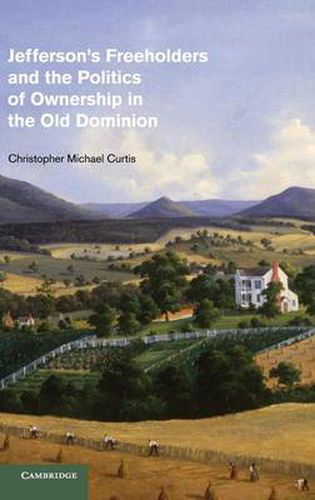Readings Newsletter
Become a Readings Member to make your shopping experience even easier.
Sign in or sign up for free!
You’re not far away from qualifying for FREE standard shipping within Australia
You’ve qualified for FREE standard shipping within Australia
The cart is loading…






Jefferson’s Freeholders and the Politics of Ownership in the Old Dominion explores the historical processes by which Virginia was transformed from a British colony into a Southern slave state. It focuses on changing conceptualizations of ownership and emphasizes the persistent influence of the English common law on Virginia’s postcolonial political culture. The book explains how the traditional characteristics of land tenure became subverted by the dynamic contractual relations of a commercial economy and assesses the political consequences of the law reforms that were necessitated by these developments. Nineteenth-century reforms seeking to reconcile the common law with modern commercial practices embraced new democratic expressions about the economic and political power of labor, and thereby encouraged the idea that slavery was an essential element in sustaining republican government in Virginia. By the 1850s, the ownership of human property had replaced the ownership of land as the distinguishing basis for political power, with tragic consequences for the Old Dominion.
$9.00 standard shipping within Australia
FREE standard shipping within Australia for orders over $100.00
Express & International shipping calculated at checkout
Jefferson’s Freeholders and the Politics of Ownership in the Old Dominion explores the historical processes by which Virginia was transformed from a British colony into a Southern slave state. It focuses on changing conceptualizations of ownership and emphasizes the persistent influence of the English common law on Virginia’s postcolonial political culture. The book explains how the traditional characteristics of land tenure became subverted by the dynamic contractual relations of a commercial economy and assesses the political consequences of the law reforms that were necessitated by these developments. Nineteenth-century reforms seeking to reconcile the common law with modern commercial practices embraced new democratic expressions about the economic and political power of labor, and thereby encouraged the idea that slavery was an essential element in sustaining republican government in Virginia. By the 1850s, the ownership of human property had replaced the ownership of land as the distinguishing basis for political power, with tragic consequences for the Old Dominion.